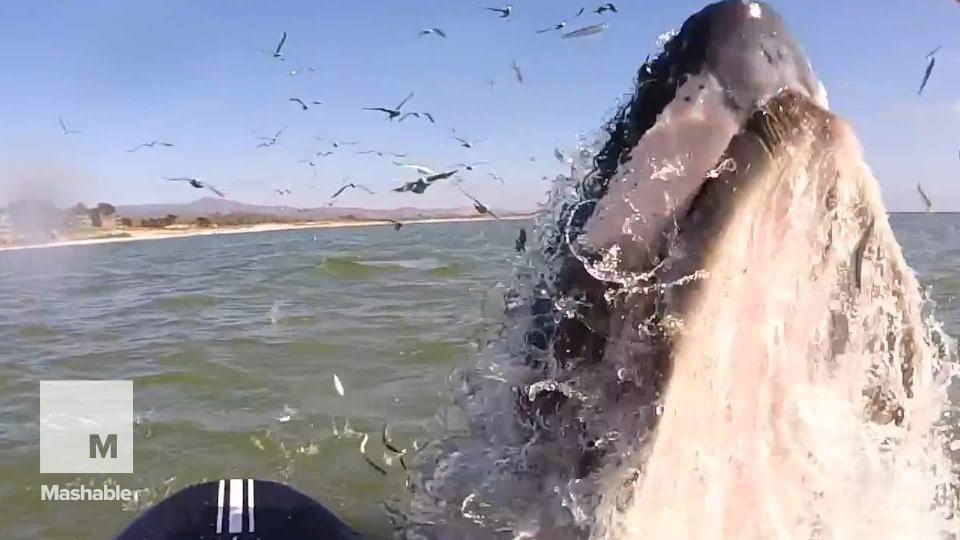Huge rotting sea creature that washed ashore is horrifyingly turning the water red

Something has washed up on the shore of an Indonesian island. It's huge, it's floating — and it's rotting.
A large 15m (49.2 ft) long sea creature was discovered off Hulung Beach, on Seram Island, Indonesia.
SEE ALSO: Huge snake falls through gym's ceiling because even indoors isn't safe
The creature was discovered by 37-year-old local resident Asrul Tuanakota, reports the Jakarta Globe.
Tuanakota initially mistook the huge blob for a stranded boat.
Photos and videos of the sea creature have gone viral, and its identity has stumped many locals. People have speculated that it could be a giant squid, or a sperm whale.
Giant squid can grow up till 13m (42 ft) long, while sperm whales average 16m (52 ft) in length.
Several videos posted by a local villager show the sea creature slowly disintegrating in the water, turning it a dark red:
A group of marine scientists were reportedly scheduled to take samples of the creature on Thursday, according to Detik. Residents have since flocked to see the giant carcass, which was estimated to have died more than three days ago.
A local military command is keeping watch on the carcass, while residents have asked authorities to help remove the remains so it doesn't contaminate the surrounding area.
Expert: It's a baleen whale
Marcus Chua, a museum officer at the Lee Kong Chian Natural History Museum told Mashable that the carcass appears to be that of a baleen whale, a subgroup of whales that include humpback whales and minke whales.
"[Based] on the images and videos, in the advanced stage of decomposition it is not possible to determine whether that is a humpback whale or not," Chua, who is also a curator of mammals and birds at the National University of Singapore-affiliated museum, added.
The carcass is unlikely to be a giant squid, as there has been no record of giant squid from Indonesian waters, he added.
When large sea creatures like humpback whales die, they end up floating around at sea, and may be eaten by scavengers like sharks.
"Those that hit the shores either decompose along beaches, or may be removed by humans if they are perceived to be a health hazard or for scientific research," Chua said.
WATCH: A humpback whale emerges from the water — inches away from a paddleboat


